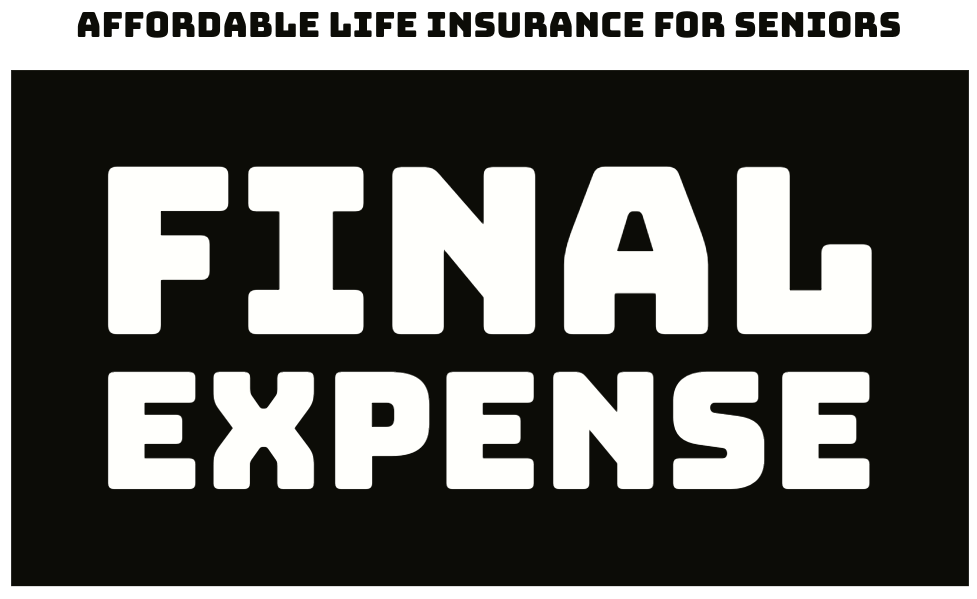When should I get life insurance? The sooner you get life insurance, the better. Key life events like starting a family or buying a home are perfect times to secure a policy. In this article, we’ll explore why these moments matter and how they impact your financial security.
Key Takeaways
-
Purchasing life insurance at a younger age results in significantly lower premiums, making it financially advantageous and ensuring better availability of coverage.
-
Key life events such as starting a family, buying a home, and entering the early stages of a career represent optimal opportunities to secure life insurance for addressing financial responsibilities.
-
Delaying the purchase of life insurance can lead to higher costs and difficulties in obtaining coverage due to potential health issues, underscoring the importance of timely decision-making.
Why Timing Matters for Life Insurance
Timing is crucial for life insurance. Purchasing it at a younger age generally results in significantly lower premiums. Younger buyers are typically healthier and pose a lower risk to insurance companies, translating to more affordable rates. As you age, health issues are more likely to arise, increasing the cost of life insurance or making it difficult to qualify. Forgoing life insurance early in life can lead to higher costs and complications down the line.
Life insurance rates vary significantly based on factors such as age and health. For instance, buying life insurance younger means locking in lower premiums that can remain fixed for the duration of the policy.
Conversely, delaying the purchase of life insurance not only leads to higher costs but also increases the risk of developing health conditions, making coverage more challenging and expensive. Understanding the optimal timing for buying life insurance is key to securing a financial safety net for your loved ones without breaking the bank.
Optimal Times to Buy Life Insurance
Several key life events create the ideal opportunity to consider life insurance: starting a family, buying a home, and the early stages of your career. Each of these milestones marks a significant change in your financial responsibilities and dependents, making them prime moments to secure your financial future with a life insurance policy.
Starting a Family
Starting a family is a critical time to consider life insurance. As new parents, ensuring your children’s future financial security becomes a priority. Life insurance provides a safety net in the event of an untimely death, covering debts, replacing lost income, and funding your children’s education. This ensures that your family’s financial stability is maintained, even if the unexpected happens.
Coverage is essential not just for the breadwinner. Stay-at-home parents need life insurance to cover the cost of services they provide, such as childcare and household management, which would otherwise need to be replaced by paid services.
Life insurance policies for children can be purchased shortly after birth, often at lower premiums than those for adults, providing a head start on their financial security.
Buying a Home
Buying a home is another pivotal moment to consider life insurance. Homeowners typically seek coverage to ensure mortgage obligations are met, even in their absence. This means that in case of an untimely death, your family would not have to worry about losing their home, providing them with financial security and peace of mind.
Early Career Stage
The early career stage is an ideal time to secure life insurance. Acquiring a policy at a young age locks in lower premiums for a longer duration, as rates are lower when you are healthier and younger. This can result in substantial savings over the life of the policy and provides long-term financial security.
Additionally, buying life insurance early allows you to accumulate significant cash value over time if you choose a permanent policy. This cash value can serve as a financial resource later in life, providing a cushion for retirement or other financial needs. Therefore, it’s prudent to consider life insurance as part of your financial planning early in your career.
Types of Life Insurance Policies

Life insurance policies come in various forms, primarily categorized into term life insurance and permanent life insurance. Understanding the differences between these types can help you choose the right policy for your needs, whether you need temporary coverage for specific financial obligations or lifelong protection with a cash value component.
Term Life Insurance
Term life insurance provides coverage for a specific period, such as 10, 20, or 30 years. Chosen for its affordability and straightforward approach, it offers a death benefit to beneficiaries if the insured dies within the term. It’s particularly suitable for those who need a financial safety net during certain years, such as while raising children or paying off a mortgage, and it can also provide death benefits to support loved ones.
One of the main advantages of term life insurance is its generally lower premiums compared to permanent life insurance, making it an attractive option for maximizing coverage while managing costs. However, unlike permanent policies, term policies do not accumulate cash value, which is a key consideration for those seeking long-term financial benefits.
Permanent Life Insurance
Permanent life insurance offers lifelong coverage and includes a cash value component that grows over time. This type of insurance is ideal for those looking to secure a death benefit for their beneficiaries while also building a financial asset that can be accessed during their lifetime under certain conditions. A permanent life insurance policy primarily consists of whole life insurance, universal life, and burial life policies. These are the main types available.
A significant advantage of buying permanent life insurance at a young age is locking in lower premiums and allowing the cash value to grow substantially over time. This long-term accumulation can provide a valuable financial resource for retirement or other financial needs, enhancing overall financial security.
The cash value savings component of permanent life insurance can be used as collateral for loans or withdrawn under specific conditions, offering flexibility and financial support when needed. This makes permanent life insurance not only a tool for providing for loved ones after death but also a versatile financial instrument during the policyholder’s life.
Financial Considerations Before Purchasing
Before purchasing life insurance, it’s essential to evaluate your financial situation comprehensively. Individuals with significant debt, such as mortgages, student loan debt, or car payments, should consider life insurance to ensure these obligations are met in the event of their death. This planning helps protect your family from financial burdens and maintains their standard of living.
Additionally, consider future financial obligations, such as your children’s education, funeral costs, and any potential changes in family income contributions. Employer-provided life insurance often offers limited coverage, which may not be sufficient. Therefore, supplemental life insurance can provide additional financial security.
Understanding the specifics of the policy you’re considering, including any cash value components and how premiums may fluctuate over time, is crucial. Discuss potential maximum premiums with your insurance agent to ensure you’re making an informed choice. Compare your current policy with new options before making changes to avoid gaps in coverage.
Benefits of Early Purchase
Buying life insurance at a younger age offers the advantage of lower premiums. Younger individuals typically qualify for these rates due to better health and lower risk, allowing them to lock in affordable rates for the long term. This early investment can result in substantial savings over the life of the policy, making it a financially savvy decision.
Buying life insurance early can provide a financial safety net for your loved ones, covering debts and other liabilities. Young adults are less likely to have pre-existing health conditions, making it easier to get approved for coverage and secure lower rates.
Purchasing life insurance sooner mitigates future health risks and ensures long-term financial security for your family. If you want to secure that future, it’s wise to get life insurance.
Life Insurance Through Work
Many employers offer group life insurance as part of their benefits package, often at no cost to the employee. This can be an excellent starting point, providing a baseline financial safety net. Enrollment in supplemental group life insurance typically does not require a health examination, making it more accessible.
However, employer-provided life insurance has limitations. Most group policies aren’t portable, meaning life insurance coverage ends if you leave the job. This can pose challenges in securing new coverage at an older age with potentially altered health.
Considering private supplemental life insurance is crucial for maintaining continuous coverage and ensuring comprehensive financial protection.
How to Choose the Right Policy
Choosing the right life insurance policy requires understanding your family circumstances and financial goals. Couples who own property together, for example, should consider a guide to life insurance that ensures coverage until their mortgage is paid off, providing financial security for the surviving partner.
Evaluate the type of coverage that best suits your needs. Term life insurance might be more appropriate for temporary financial obligations, while permanent life insurance policies are better suited for lifelong financial protection and cash value accumulation. Understanding these nuances can help you make an informed decision that aligns with your long-term financial plans.
Cost of Waiting
Delaying the purchase of life insurance can be costly. As individuals age, the likelihood of developing health issues increases, leading to higher premiums or even denial of coverage. For example, the average cost for a 20-year term policy for a healthy 35-year-old male is approximately $30 monthly, whereas for a healthy 55-year-old male, it can reach as high as $150 monthly.
Waiting to buy life insurance can also mean missing out on the opportunity to lock in lower premiums and secure long-term financial benefits. Therefore, act sooner rather than later to avoid potential financial pitfalls and ensure your loved ones are protected.
Summary
In conclusion, the timing of purchasing life insurance is a critical factor that can significantly impact your financial security and that of your loved ones. Buying life insurance at key life stages, such as starting a family, buying a home, or early in your career, can help you secure lower premiums and provide a robust financial safety net.
By understanding the types of life insurance available and evaluating your financial situation, you can choose the right policy that aligns with your needs and goals. Don’t wait until it’s too late; make a proactive decision to protect your family’s future today.
Frequently Asked Questions
Why is it better to buy life insurance at a younger age?
Purchasing life insurance at a younger age is advantageous due to lower premiums, as younger individuals are generally healthier and present a lesser risk to insurers. This can lead to significant long-term savings.
What are the optimal times to consider purchasing life insurance?
The optimal times to consider purchasing life insurance are during significant life events, such as starting a family or buying a home, as these moments often come with increased financial responsibilities. Taking action during these periods can provide essential financial protection for your loved ones.
What’s the difference between term life insurance and permanent life insurance?
Term life insurance is more affordable and covers a specified period, whereas permanent life insurance provides lifelong coverage and accumulates cash value over time. Therefore, your choice should depend on your financial goals and coverage needs.
How do I choose the right life insurance policy?
To choose the right life insurance policy, carefully assess your family needs, financial objectives, and the features of various policy types, such as whether you require temporary or permanent coverage. This informed approach will enable you to select the most suitable option for your circumstances.
What are the financial consequences of delaying the purchase of life insurance?
Delaying the purchase of life insurance can result in higher premiums and the risk of being denied coverage due to emerging health issues. It is advisable to secure life insurance at a younger age while health is typically more favorable.
